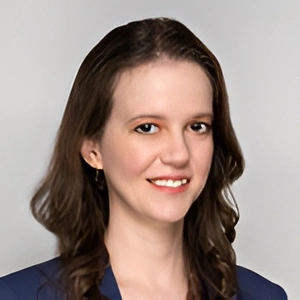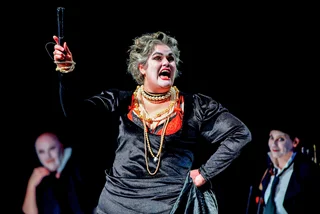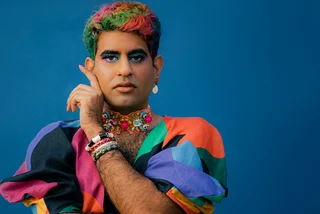Karlovec might not be Machiavelli’s Florence, but, with its backroom deals and love stories, it carries an air of familiarity for anyone who has spent time in small Czech towns in the past three decades. The fictitious town is the setting for playwright Joe Sutton’s The Third Army, which comes to Prague for the first time next month.
Sutton, whose 1995 play Voir Dire was nominated for a Pulitzer, centered the plot around a nuclear plant bearing resemblance to real-life Temelin. The plant is the subject of a tortuous modernization process that sees Western and Russian interests clashing, while the locals are trying to make the most of the opportunities that post-communist Czechia has to offer.
PARTNER ARTICLE
An iconic Czech actor and pervasive film noir references
In addition to the plot itself, the play’s deep connections to the Czech Republic involve well-known Czech actor Jan Tříska, who starred in the play's 2001 debut. Tříska emigrated to the U.S. in the 1970s, made a name for himself in Hollywood, and returned to the Czech Republic after the Velvet Revolution, among other things to act as best man at former President Václav Havel's wedding. Sutton says that having Tříska in the production, “given his politics, his history, his understanding of theater, how culture worked for in the 60s and 70s in Czechoslovakia” was “really exciting, and he really loved this play.”
Among the sources of inspiration for the play, Sutton mentions the 1949 British film noir The Third Man, starring Orson Wells, which is set in post-World War II Vienna. He adds that, while living in the Czech Republic in the early 1990s, he had the same sense of living “in a moment in time” and in a society on the cusp of radical change, similar to Vienna in the late 1940s. As such, he spent eight months altogether in a Southern Bohemian town, which served as the inspiration for Karlovec, where he interviewed about a dozen people about “the final years had been before the Berlin wall came down, and the immediate aftermath.”
The similarities between The Third Army and The Third Man also pertain to the style of storytelling. “There's something about the propulsive nature of a certain kind of suspense or mystery drama that I hope this play captures well, where the plot unfolds in constantly surprising ways,” Sutton says. The result, he adds, should leave the audience “a little bit breathless” while watching how various pieces connect to each other.
Speaking about bringing the script to life, director Elissa Levitt says that the play brought some “really interesting challenges” having to do with transposing the world of film noir onto the stage. “It's not as easy as shining a light through the Venetian blinds, there's a lot more that you have to do to make something like that happen,” she said.
Times of hope and change
Returning to the early 1990s in the Czech Republic, Sutton says the era was marked by “extreme hopefulness, perhaps naivety about this new system, capitalism and the Western world, just the wonders of Western society” adding that, in the ensuing decades, “my suspicion is some of that naivety and wonder and excitement may have worn thin.” The play describes “a pivot point in history,” Sutton says, which could be interesting to explore for its potential audience in light of current events, and their implications.
The Proustian madeleine in this case comes in the opening scene of the play, which shows one of the Americans offering American cigarettes and American whiskey to the Czech mayor of Karlovec right after meeting each other. That meeting “underscores the culture clash and particularly the hegemonic reach of American culture in a comic way,” Sutton says, while also leavening the mix by bringing lighter touches to the play.
Joe SuttonI'm very concerned these days about fascism, and we could be on the cusp of another moment in time that could be quite cataclysmic and have very, very significant rollover implications in the years and decades to follow.
Czechia through the eyes of the others
Speaking about the genesis of the play, associate producer Max Munson says he has known Sutton and has been a fan of his works since the early 1990s when the Prague Revue magazine published some of Sutton’s plays. Still, the idea of bringing one of his plays to actual theater came to Munson only after meeting the play's director Elissa Levitt, and Guy Roberts, the founder and artistic director of the Prague Shakespeare Company. After reading three of Sutton’s plays that Munson had selected, Roberts decided on The Third Army and said “Let’s make this happen.”
As to what makes the play unique, Levitt says that, while the story is set in the Czech Republic, “it’s written from an American voice, from (the perspective of) an outsider looking in.” For Levitt, the play involved “wearing two hats” since she is both directing and starring.
A core actress of the Prague Shakespeare Company, Levitt made the transition to directing last fall, a move that she enjoyed since it involved “all of these extra conversations that happen around the script” that actors are not otherwise part of, adding “all of that is really interesting to me as a more creative side of the whole show.”
Still, juggling the two wasn’t without its challenges. Levitt says that, at one point, she went out “into the audience to watch and to take notes and to think about ways I could improve,” and then “all of a sudden there'd be silence, and people looking at me because it was my entrance.”
Contemporary issues take the stage
Director Robert Orr adds that the play offers viewers a chance to ponder on Czechia’s trajectory in the past three decades in the context of other events happening at this time, such as the war in Ukraine, populism, and right-wing politics. These topics are important for the “expat community, but also people who've come here more recently and also for Czechs who remember that time.”
Orr says that current topics such as nuclear power and the environment should really speak to contemporary audiences. “Everybody's obviously really concerned about the environment and climate change, and big money coming in and maybe helping the economy, but not doing things for people in the long term and not doing things for the environment.”
Ultimately, Orr says, the play acts as a vehicle for certain questions, such as how Czech people relate to their politicians. A starting point for such a discussion is the main character, Marek, who stands out for being “quite honest,” and “the one person (who is) really doing the right thing,” as well as believing “he has a responsibility to the people in his town and country to protect them. Do Czechs feel that about their politicians at the moment?”
The entire creative endeavor, Munson says, aims to leave people in the audience feeling “thrilled that they just saw an amazing play. There will be highs and lows and questions and moments where they will be sitting on the edge of their seats, a couple of moments where they're going to have their mouths wide open.”
The Third Army is at Divadlo Na Prádle on Oct. 5, 6, 13, and 14, produced by Prague Shakespeare Company in association with Marcela and Max Munson, Associate Producers.












 Reading time: 6 minutes
Reading time: 6 minutes 
























